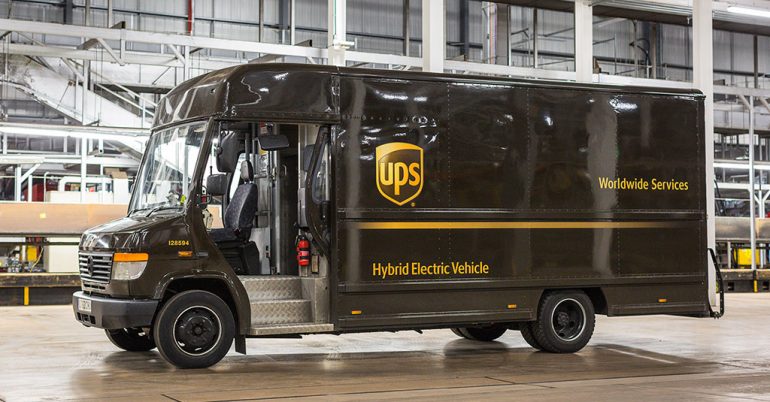
FedEx and UPS are facing challenges in transitioning to electric vehicles (EVs) due to shortages in supplies and batteries. These shortages not only limit the availability of EVs but also drive up prices, making it difficult for the package delivery giants to replace their traditional gas-powered vehicles and meet climate goals set by the Biden administration.
One major obstacle is the scarcity of electric step vans, crucial for UPS and FedEx operations. These vans are essential for reducing emissions, but their production is hindered by battery shortages and financial troubles facing some electric van manufacturers. The uncertainty surrounding these manufacturers’ longevity further complicates the transition.
Additionally, UPS and FedEx are grappling with the loss of California vouchers that previously helped offset the high prices of EVs. Despite some relief from California’s requirement to exclusively purchase electric delivery vehicles, the overall supply constraint remains a significant challenge.
The dilemma faced by these delivery companies and their electric van suppliers reflects a Catch-22 situation. Without sufficient demand, manufacturers struggle to produce enough vehicles, while limited supply impedes the growth of demand.
UPS, a pioneer in testing and purchasing EVs, remains committed to its plan of relying on EVs and alternative fuel vehicles to reduce emissions. However, the company acknowledges the challenges posed by the current market conditions.
FedEx, on the other hand, is exploring alternatives to incorporate lower-emission delivery trucks into its fleet while keeping its options open regarding EV adoption.
The shortage of larger capacity electric vans is particularly acute, with both UPS and FedEx citing limited availability. Despite their efforts to transition to EVs, setbacks such as the financial struggles of EV manufacturers and the high cost of electric vans hinder their progress.
While UPS aims to increase its use of alternative fuels in its operations, concerns remain about the environmental impact and cost-effectiveness of EVs compared to vehicles powered by renewable natural gas.
In addition to supply shortages, the high cost of EVs poses a significant barrier to adoption. The price of electric step vans is considerably higher than traditional models, further exacerbating the financial challenges faced by UPS and FedEx.
Changes in government incentives, such as the modification of California’s voucher program, further complicate the situation for large companies like UPS and FedEx. These changes may impact the adoption rate of EVs among the biggest fleets, potentially influencing the future regulatory landscape for zero-emission vehicles.
Despite these challenges, both UPS and FedEx remain committed to exploring opportunities for electrification while navigating the current constraints in the EV market.
Source: Reuters

Mike Floyd is a finance executive by trade and a car enthusiast at heart. As a CFO with a keen eye for detail and strategy, Mike brings his analytical mindset to the automotive world, uncovering fresh insights and unique perspectives that go beyond the surface. His passion for cars—especially his favorite, the Porsche 911, fuels his contributions to Automotive Addicts, where he blends a love for performance and design with his professional precision. Whether he’s breaking down industry trends or spotlighting emerging innovations, Mike helps keep the site both sharp and forward-thinking.